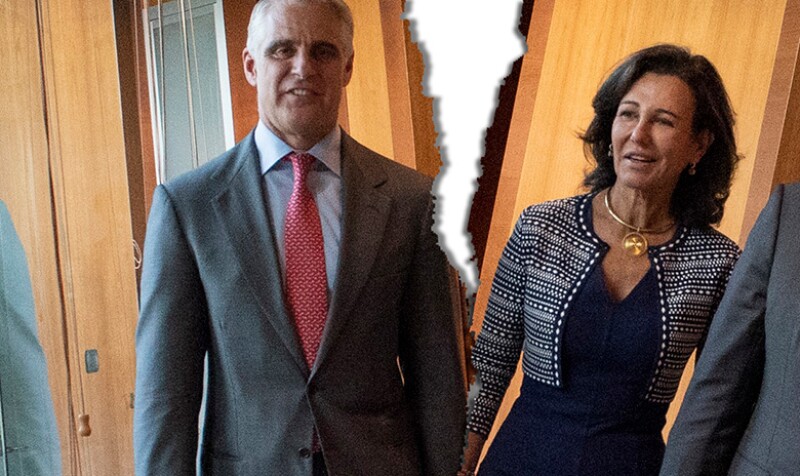
Andrea Orcel and Ana Botín
Andrea Orcel’s eventual non-appointment as chief executive of Santander will, in time, rank high on the list of dysfunctional succession plans in an industry known for some spectacular failures.
Jaws hit the floor in September when Orcel, the epitome of the investment banker, was named as the putative CEO of commercial- and retail-banking focused Santander.
It seemed an unlikely fit, despite the close professional relationship Orcel had developed with executive chairman Ana Botín across decades of advising and doing deals together.
Jaws went through the floor nearly four months later when it was revealed that Orcel would not be joining after all.
At issue was the amount of deferred compensation Orcel had accrued during his seven years at UBS. Industry estimates put the figure as high as $50 million.
Botín’s explanation via a press release read thus: “Santander is a retail and commercial bank with significant responsibilities to the societies in which it operates. In making this decision we have had to balance the respect we have for all of our stakeholders – the millions of people, customers and shareholders we serve – with the very significant cost of hiring one Andrea, by compensating for the loss of a significant proportion of seven years of his past remuneration.